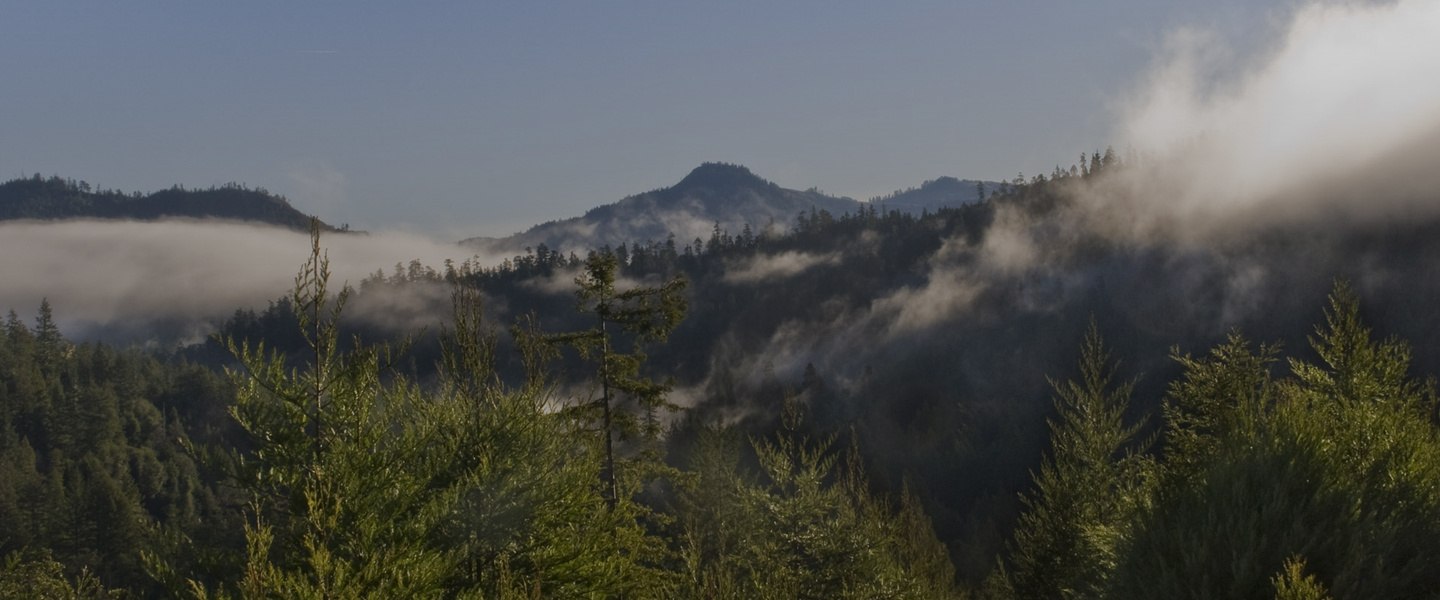
Officials, activists participate in hack-and-squirt forest fly-over
July 22nd 2015
by Adam Randall
07/22/2015
Ukiah Daily Journal
State Assemblyman Jim Wood, D-Healdsburg, Mendocino County Supervisor Dan Hamburg and other participants had a "birds-eye" view of the hack-and-squirt situation over the county Wednesday, as a forestry activist group organized a fly-over of the affected northern part of the county from the Ukiah Airport.
The flying route Wednesday included the Albion and Navarro Watershed areas near Comptche, and outside Covelo, said Christian Bucknell, outreach coordinator for Forests Forever, a forestry advocacy group based out of San Francisco. The plans and flights were provided by LightHawk, a nonprofit group that specializes in flying people over areas involved in conservation issues.
"The purposes today are to introduce the assemblyman to the issue that county members have become increasingly concerned about," Hamburg said.
According to Hamburg's resolution in April, Mendocino County had 22,000 acres of hardwood trees killed and left standing between 2012 and 2014, which at that rate, would be 1.5 million trees per year.
The resolution failed to gather enough supervisor support to ask area timber operators to voluntarily cease hack-and-squirt operations, along with conducting an independent fire danger analysis.
Hamburg has said a resolution was passed by the Board of Supervisors 20 years ago to stop hack-and-squirt, but basically never materialized after.
A subsequent resolution by Supervisor Tom Woodhouse was passed the meeting after to rework the county's Community Wildfire Protection Plan which was undertaken by the Executive Office and the Fire Safe Council, which included identifying funding to revisit the possibility of conducting an independent study on fire risks associated with hack-and-squirt.
"I'd like to see a study in Mendocino County, and we should have a plan for firefighters before they go out into a manufactured hazard," said Ted Williams, fire chief of the Albion-Little River Volunteer Fire Department.
Wood said he didn't know what to expect prior to his fly-over, but he has been paying attention to what has been going on with the controversial issue.
"There's no pattern to it," Wood said after the flight. "It's not like every tree in the area has been hack-and-squirted, so there must be a method."
Hack-and-squirt, the process of cutting a notch in tanoak trees and then spraying them with herbicides to kill them, is widely used by timber companies in the area as a cost-effective method for ridding commercial forest lands of what has been described as problem trees.
Killing such trees is a way of helping more desirable trees thrive nearby, which produce a more desirable product, some environmental advocates say. The squirted trees then die, and are left standing until they fall.
Environmentalists, other citizens, county officials and firefighters alike have grown equally concerned in the past few months that with the drought, it is only a matter of time before the dead trees go up in flames, as well as the possible health effects to the community if these areas were to one day have a significant burn. Also of concern is the use of herbicides themselves, and what the amount used is doing to local ecosystems.
"I know this is not unique to Mendocino County and is being done in other places as well," Wood said.